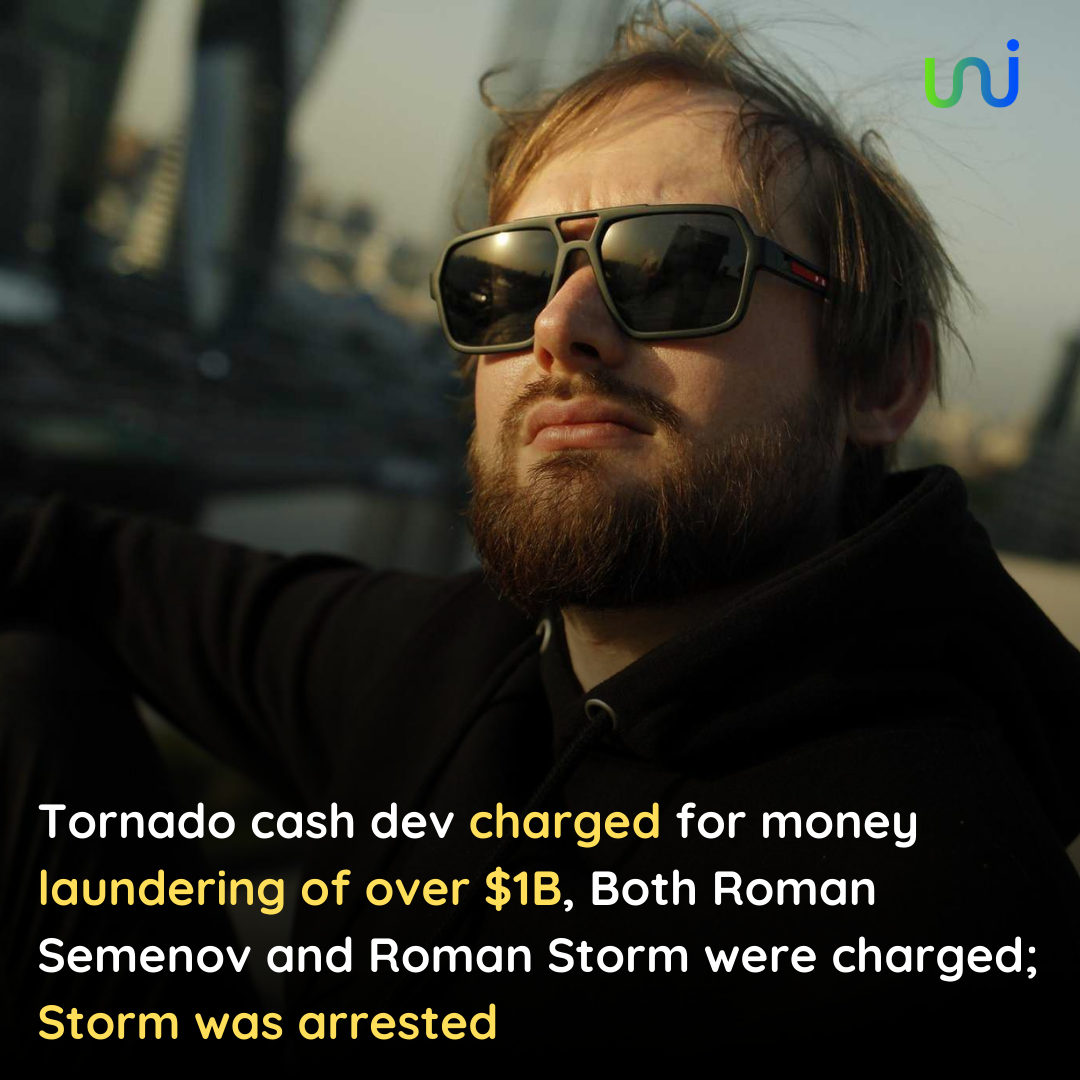The founder of Tornado Cash, Alexey Pertsev, finds himself embroiled in legal turmoil as Dutch prosecutors pursue charges related to alleged money laundering activities amounting to $1.2 billion in crypto assets. The case, reported by DL News, underscores the growing prominence of Pertsev in the realm of crypto crime rather than for the intended service of his company.
Tornado Cash founder’s legal troubles deepen
According to reports, Dutch prosecutors have focused on 36 transactions deemed illicit, with the highest involving 175 ETH from the Axie Infinity-linked crypto protocol Ronin Bridge. Additionally, transactions related to decentralized protocols like Harmony and Nomad Bridge have also come under scrutiny.
Pertsev’s lawyer, Keith Cheng, revealed that prosecutors have broadly accused Pertsev of money laundering but have not specified the exact nature of his alleged involvement in the criminal offense.
This is not the first time Pertsev has faced legal action concerning money laundering accusations. In August 2022, he was arrested by the Fiscal Information and Investigation Service (FIOD) of the Netherlands over allegations of laundering $7 billion in cryptocurrencies. Despite being granted bail, Pertsev was arrested again in August of the following year by the FBI, following claims from crypto digital detective ZachXBT linking a suspicious wallet to Tornado Cash.
OFAC sanctions and international implications
The Office of Foreign Assets Control (OFAC) of the United States Treasury Department previously sanctioned Tornado Cash for its alleged role in facilitating money laundering, including funds associated with the North Korean Lazarus hacking group. These actions highlight the international ramifications of the case and the broader regulatory scrutiny faced by crypto platforms.
Pertsev’s trial is scheduled to commence on March 26 in the Dutch city of ‘s-Hertogenbosch. Despite vehemently denying any involvement in money laundering since his initial arrest in 2022, Pertsev faces serious legal consequences if found guilty of the charges against him. The outcome of the trial could have significant implications for the future regulation of crypto platforms and their accountability in preventing illicit financial activities.





